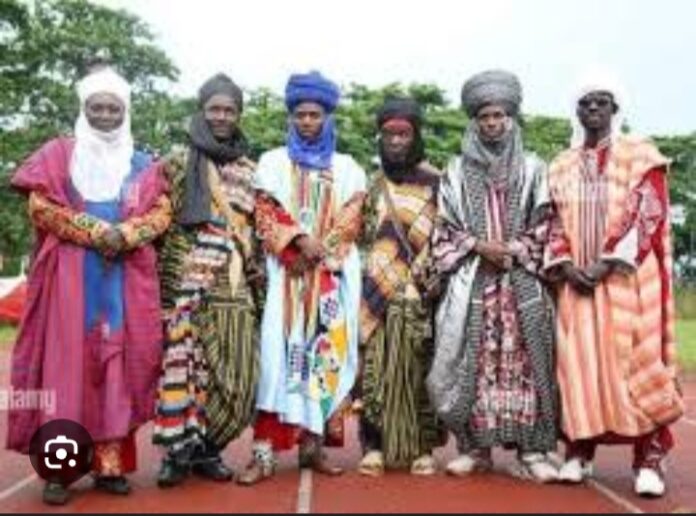Northern Nigeria, with its rich tapestry of cultural and religious diversity, presents a unique landscape for the practice of democracy.
The region’s dominant religion, Islam, and its deeply ingrained cultural traditions pose important questions about the compatibility of democratic principles with local values.
As Nigeria continues to grapple with democratic consolidation, it is essential to explore whether democracy aligns with Northern Nigeria’s cultural and religious ethos.
Historical ContextTo understand the relationship between democracy and Northern Nigeria, it is crucial to consider the historical context. The region has a long history of centralized authority, dating back to pre-colonial times when powerful emirates and kingdoms, such as the Sokoto Caliphate, played central roles in governance.
These emirates were governed by traditional rulers who wielded significant power and influence, often basing their authority on Islamic principles and Sharia law.
With the advent of British colonial rule, indirect rule was established, allowing traditional leaders to maintain their influence while integrating them into the colonial administration.
This system persisted even after Nigeria gained independence in 1960, leading to a complex interplay between traditional and modern governance structures.
Cultural Considerations Northern Nigeria’s culture is characterized by a strong sense of community, respect for authority, and adherence to traditional norms.
These cultural traits sometimes seem at odds with the individualistic and liberal values often associated with Western-style democracy. For instance, the concept of communal decision-making and consensus-building in traditional societies might clash with the competitive and adversarial nature of democratic elections.
Moreover, the region’s patriarchal society, where elders and male figures hold significant authority, can impact the inclusivity and egalitarian principles that democracy promotes.
Women’s participation in politics, for example, remains a contentious issue in many parts of Northern Nigeria, despite gradual progress in recent years.
Religious DynamicsIslam, the predominant religion in Northern Nigeria, profoundly influences the region’s values and legal frameworks.
Sharia law, which governs aspects of personal conduct and morality, coexists with Nigeria’s secular legal system, leading to a dual legal structure in some states. This coexistence has sparked debates about the role of religion in politics and governance.
Democracy, with its emphasis on secularism and pluralism, can sometimes conflict with religious norms. For instance, the idea of legislating based on popular will might contradict religious prescriptions perceived as divine and immutable.
Additionally, issues such as freedom of speech and human rights, cornerstones of democracy, may clash with religious sensitivities and interpretations of Sharia law.
Political RealitiesDespite these challenges, Northern Nigeria has made significant strides in embracing democratic principles.
Elections are regularly held, and political parties operate within the region, reflecting a commitment to democratic governance. However, the democratic process is not without its flaws.
Issues such as electoral violence, corruption, and political patronage continue to undermine the integrity of elections and erode public trust in democratic institutions.Furthermore, the interplay between traditional rulers and elected officials can complicate governance.
In some cases, traditional rulers wield considerable influence over local politics, shaping electoral outcomes and policy decisions. While this can provide stability and continuity, it can also hinder the democratization process by reinforcing old power structures.
Path ForwardThe compatibility of democracy with Northern Nigeria’s culture and religion is not a question with a straightforward answer.
Rather, it requires a nuanced understanding of the region’s unique dynamics and a willingness to adapt democratic principles to local contexts. Some key areas for consideration include:
Inclusive Governance: Efforts should be made to ensure that all segments of society, including women and youth, are included in the political process. This involves addressing cultural barriers and promoting education and awareness about democratic rights and responsibilities.Respect for
Traditional Institutions: While democracy promotes modern governance structures, it is important to respect and integrate traditional institutions that continue to play vital roles in Northern Nigeria. Finding a balance between these systems can enhance legitimacy and stability.
Religious Sensitivity: Policymakers should navigate the delicate balance between secular democratic principles and religious values.
Engaging religious leaders in dialogue and ensuring that democratic practices respect religious sentiments can foster greater acceptance and participation.
Strengthening Institutions: Building strong, transparent, and accountable institutions is crucial for the success of democracy in Northern Nigeria.
Efforts to combat corruption, enhance the rule of law, and promote good governance will bolster public confidence in democratic processes.
In conclusion, while democracy presents certain challenges when juxtaposed with Northern Nigeria’s culture and religion, it also offers opportunities for growth and development. By embracing a context-specific approach that respects local values and traditions, Northern Nigeria can forge a path towards a more inclusive and resilient democratic society.
Muhammad Inuwa M/fashi
Social Commentator.




